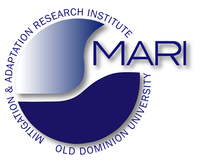

The IPCC class models continue to increase in their complexity
and realism of Earth System representation with increasing resolutions.
They will serve global governance issues as envisioned in the
Representative Concentration Pathways but day-to-day decision-making for
water, food, energy, coastal management, etc., will require
regional-specificities that are not easily captured by global models.
Adding skill to global model predictions and projections has relied
largely on increased resolution and the garbage-in-garbage-out syndrome
has been a severe handicap for that paradigm. A multi-physics
ensembling approach is employed to develop a Regional Earth System Model
with complete terrestrial hydrology and cloud-aerosol-radiation
feedbacks. An example of a partial implementation of a Regional Earth
System Prediction for the Chesapeake Bay region is used as framework to
outline the possible pathways for adaptive learning and sustainable
management from days to decades at scales that matter. Some basic
predictions are discussed to emphasize the need to build confidence in
the use of actionable information generated by such systems.
Dr. Raghu Murtugudde is a professor of atmospheric and oceanic science at the University of Maryland. He received a Ph.D. in Mechanical Engineering from Columbia University in 1994 and a M.S. in Aerospace Engineering from the University of Texas-Arlington in 1987 and a B.S. in Aeronautical Engineering from the Indian Institute of Technology-Bombay.

|
CCPO Innovation Research Park Building I 4111 Monarch Way, 3rd Floor Old Dominion University Norfolk, VA 23508 757-683-4940 |

|